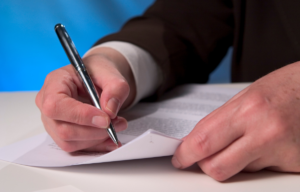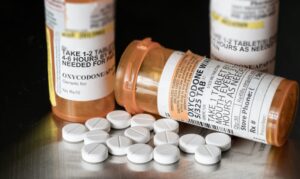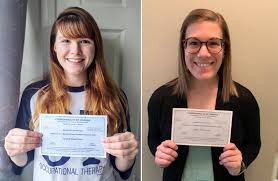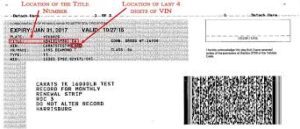The process of applying for permits in New York State (NYS) has always been regulated to ensure compliance and accuracy. Over the years, requirements have evolved to enhance accountability and prevent fraudulent activities. One of the significant additions to the permitting process is the NYS residence proof. This change was implemented to verify that applicants genuinely reside in New York State and are eligible for state-issued permits, such as driver’s permits, professional licenses, and firearm permits.
The History when did they add nys residentence proof to permit
Historically, permit applications in NYS did not always require robust documentation for residence proof. Early systems relied on basic identification forms like driver’s licenses or utility bills, with minimal verification of residency. However, the need for stricter regulations arose due to:
- Identity Fraud Concerns
Cases of individuals obtaining permits fraudulently using out-of-state or fake addresses prompted a reevaluation of the process. - Federal Compliance Mandates
Following the passing of the REAL ID Act of 2005, states were encouraged to tighten their residency verification standards. The act required states to adopt secure practices for issuing identification and permits. - State-Specific Security Concerns
New York’s status as a high-density state with major urban centers led lawmakers to introduce additional verification to enhance public safety.
when did they add nys residentence proof to permit Applications?
The exact timeline for adding NYS residence proof to permit applications varies depending on the type of permit. Below is a breakdown of major milestones:
- Driver’s Permit Applications
- The requirement for residence proof in driver’s permit applications was formally introduced in 2017, as part of New York’s compliance with the REAL ID Act.
- Applicants were mandated to submit a combination of documents, such as lease agreements or utility bills, proving their residency in NYS.
- Professional Licenses
- For professional permits, such as contractor licenses or cosmetology certifications, proof of residency became mandatory around 2015, following the Department of State’s initiative to ensure applicants met state-specific qualifications.
- Firearm Permits
- The most stringent residency requirements were introduced in 2022 under the Concealed Carry Improvement Act (CCIA). This legislation followed increased scrutiny of firearm permits and mandated verified NYS residency.
- Hunting and Fishing Licenses
- Residency proof requirements for these permits date back to 2010, reflecting the state’s effort to prioritize permits for genuine residents over non-residents seeking discounted rates.
Why Was NYS Residence Proof Added to Permit Applications?
- Preventing Fraud
The introduction of residency proof aimed to curb cases where non-residents attempted to exploit NYS’s permitting system. - Streamlining Resources
Verifying residency ensures that permits are granted only to eligible residents, reducing strain on state resources. - Federal and State Law Compliance
The addition of residence proof aligns with federal mandates and state laws, enhancing security measures. - Enhancing Public Safety
In cases like firearm permits, residency verification is critical to maintaining public safety by ensuring permits are issued responsibly.
What Counts as NYS Residence Proof?
To meet thewhen did they add nys residentence proof to permit requirement, applicants can provide the following documents, depending on the permit type:
- Primary Documents
- A valid NYS driver’s license or state ID card.
- A valid U.S. passport with a New York address.
- Secondary Documents
- Utility bills showing the applicant’s name and New York address.
- Lease or mortgage agreements.
- Voter registration cards.
- Alternative Documents (for special cases)
- Bank statements reflecting transactions within New York State.
- School transcripts for students residing in NYS.
Impact of the NYS Residence Proof Requirement
- For Applicants
- The additional step of proving residency has lengthened the application process for some.
- Individuals without readily available documents often face delays.
- For State Authorities
- The new requirement has streamlined the system, ensuring permits are issued only to eligible residents.
- Enhanced record-keeping has made the system more transparent and secure.
- For Non-Residents
- Non-residents face more challenges in applying for permits, as they must meet stricter criteria or apply for non-resident permits, where applicable.
How to Ensure Compliance with NYS Residence Proof Requirements
- Gather Appropriate Documentation
Applicants should compile valid proof of residence well in advance to avoid delays. - Understand Permit-Specific Requirements
Each permit may have unique documentation criteria, so it is essential to review guidelines for the specific permit type. - Stay Updated on Regulatory Changes
New York State frequently updates its permit application rules. Regularly check official state websites or contact authorities for the latest information. - Use Digital Verification Platforms
Many permit applications now accept digitally verifiable documents, streamlining the process.
Challenges and Criticisms of the Residence Proof Requirement
- Accessibility Issues
Low-income individuals or those experiencing homelessness may struggle to provide traditional residence proof, creating barriers to access. - Increased Processing Times
Some applicants report longer processing times due to the additional verification step. - Non-Resident Permit Confusion
Non-residents applying for state-specific permits often face confusion over eligibility and documentation requirements.
Future of Residence Proof in NYS Permits
The implementation of NYS residence proof is likely to expand further as technology advances. Here’s what the future may hold:
- Digital Residency Verification
Adoption of blockchain or AI-based systems could simplify and speed up residency verification. - Integration with National Databases
Cross-referencing state and federal databases could enhance the accuracy of residence verification. - Increased Public Awareness
The state may roll out public campaigns to educate citizens about the importance and process of providing residence proof.
Understanding when did they add nys residentence proof to permit applications sheds light on the evolving nature of regulatory measures in New York State. The addition of residency proof requirements for various permits—ranging from driver’s licenses to firearm permits—reflects the state’s commitment to security, accountability, and fairness.
For more updates visit our website.












